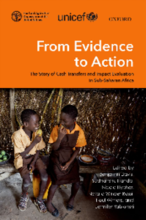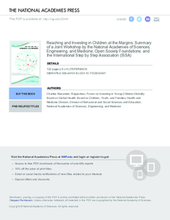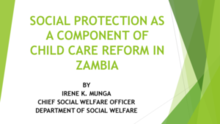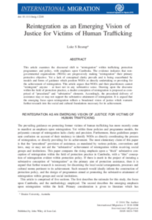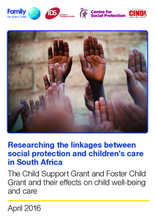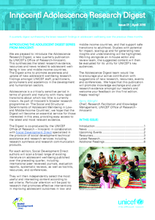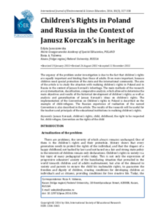Displaying 201 - 210 of 461
This book published jointly by FAO, UNICEF, and Oxford University Press presents the findings from evaluations of the Transfer Project, a cash transfer project undertaken in the following sub-Saharan African countries: Ethiopia, Ghana, Kenya, Lesotho, Malawi, South Africa, Zambia, and Zimbabwe. It concludes that cash transfers are becoming a key means for social protection in developing countries.
To examine the science, economics, and politics of investing in the health, education, nutrition, and social protection of children at the margins, the Forum on Investing in Young Children Globally (iYCG Forum) held a workshop in Prague, Czech Republic, on November 3–4, 2015, titled, “Reaching and Investing in Children at the Margins.” This report summarizes the workshop and highlights the key learning from the event.
This presentation from the Department of Social Welfare, given at the Zambia National Consultation to Accelerate Care Reform, describes the Zambia Law Development Commission and its work, discusses the need to integrate social protection with child protection to meet the needs of vulnerable children and families in Zambia.
This brochure outlines the Public Welfare Assistance Scheme, including its objectives, types of assistance provided, social and educational support provided, eligibility and how to access services.
This article examines the discoursal shift to “reintegration” within trafficking protection programmes and policy, with emphasis upon Cambodia.
This report presents research on the impact of two cash transfer programs for vulnerable children in South Africa on children’s care.
The Adolescence Research Digest is a new quarterly publication by UNICEF’s Office of Research-Innocenti. This synthesizes the latest research evidence, resources and news related to adolescent well-being in low- and middle-income countries.
This paper reports selected results from a mapping review of research conducted in the UK and published between January 2010 and December 2014. The purpose of the review was twofold: to develop a typology of child protection research; and to use this typology to describe the features and patterns of empirical research undertaken recently in the UK in order to inform a future research agenda.
Community-based organizations (CBOs) have the potential to provide high quality services for orphaned and vulnerable children in resource-limited settings.
The aim of this article is to study the situation on realizing children’s rights in Poland and in Russia in the context of Janusz Korczak’s principles.

